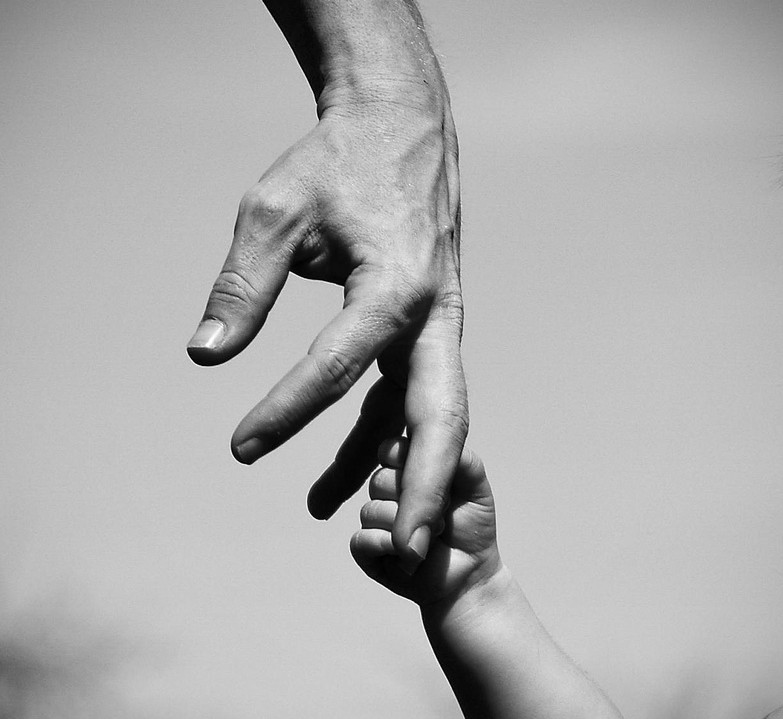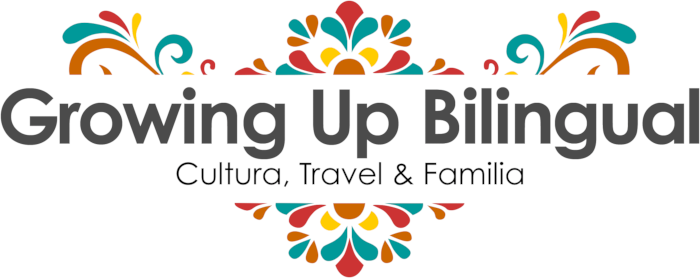In our first installment of raising children in a non-native language, I talked about the vocabulary gap between non-natives and their newly-minted environment with their “plus one.” This if you didn’t get a chance to read that post go ahead and check it out. I’m fairly biased, considering I wrote it, but I think it’s informative.

So what is the second challenge when raising children bilingually as a non-native speaker?
Identity. Your language is hard-wired to your identity. A lot of research has been done on language and personality and how they are tied together. Speaking from the perspective of someone who lives in two languages, it’s true. They are definitely tied together. My wife and I speak Spanish together and have since the beginning of our relationship together. Our relationships “identity” is in Spanish. It’s weird to speak to her in English at this point. With your child, it’s slightly different.
Parents love their children and want to bond with them; I know… this is groundbreaking stuff. When my child was born I started to immediately speak to him in Spanish. It actually felt like the “right” thing to do. I spoke it well enough that I wasn’t overly limited with my expression from the get-go.
That being said, a lot of emotions exist when your child is born, and I would be lying if I said I haven’t had moments where I wonder if it wouldn’t be easier for us to bond in English or if I am somehow doing him a disservice or limiting our relationship by using Spanish as a medium for our communication. At this point, I think that answer is no. It is, however, something I am cognizant of and will modify as time goes by.
While there are pitfalls, challenges, moments of self-doubt and the occasional identity crisis when raising bilingual children in a non-native language, non-native language parenting can be successful! Self-doubt is normal (I hope?) and can certainly be overcome. As anything in life, if it’s easy it probably isn’t worth it, and conversely, if it’s worth it most likely it isn’t easy. The road ahead isn’t paved in gold, but it’s paved… or at least sparsely sprinkled with gravel. Maybe more like a path mowed through the jungle that has slightly overgrown? Anyway, the bottom line is, there is a way. I’m finding that way. Somehow.
As it is with life, persistence begets results. Results beget success. The word beget begets pretentiousness. The emotional side of raising children bilingually is important. As a typical man, I’m not overly in-tune with this aspect, however luckily my wife lets me know when I’ve messed up. Thanks honey.
Being bilingual is riddled with perks like being able to pass bilingualism along to your children. Whether you are marrying a foreigner and raising bilingual children, or going at it alone to raise a bilingual child, don’t give up! It’s tough, but the benefits of being bilingual for your child far outweight the difficulties created by trying to raise a bilingual child.
Jeffrey Nelson of LivingBilingual.com
- Title: The Bilingual Advantage: How Speaking Two Languages Boosts Career and Business Opportunities - August 28, 2013
- What Does It Mean To Speak More Than One Language? - August 14, 2013
- 5 Ways To Keep Your Little Language Learners Motivated! - July 25, 2013



I completely agree. I am bilingual but Spanish is who I am. I count in Spanish!
Good for you! Different languages definitely change your perspective on different things. Sometimes I feel more at home in Spanish and sometimes in English. It depends on the situation!
Me encantaría que mis hijas hablaran en espanol, gracias
Ensenaselo entonces! 🙂 Tu puedes! Jaja. 🙂
La lengua materna de mis hijos es el español pero trato de ofrecerles una enseñanza bilingüe. Con nosotros los padres, hablan casi todo español pero entre ellos muchas veces se comunican en inglés.
Por lo que entiendo, eso es lo comun. Especialmente con Ingles. El Ingles es muy fuerte en los Estados Unidos y en todo el mundo, asi que es mas probable que los ninos lo hablen entre ellos… especialmente si la mayoria de sus amiguitos halban Ingles. No te preocupes! Si les hablan a ustedes en Espanol, estan aprendiendo Espanol! Y eso es el reto, verdad? Siguele echando fuerza y lo lograras!
Yo insisto mucho con mis hijas para hablar en español en casa, es una lucha diaria ya que como dices el ambiente es en Inglés y hay que buscar medidas para a atraerlos positivamente, gracias por abordar este tema.
Reina,
Claro que tienes razon! La lucha seguira! Jaja. Y la verdad es que si, es necesario encontrar una manera para animarlos y motivarlos sino que el lenguaje vuelva mas importante que la relacion entre ellos! Es una linea muy fina y delgadita pero se puede logar! Que bueno que sigas en la lucha!
Jeff
What a great article! I am non-native bilingual in Spanish as well, and find myself sweet talking our children and pets in Spanish regularly – our girls (now 4 and 5) have been throwing Spanish into their everyday lives and I love it!
That’s awesome! I love meeting other non-native speakers passing their second language on to their little tykes. Keep up the good work! Every little bit helps. 🙂
Jeff
Me encanta el tema y la identidad en casa es en español porque es lo natural, como me sale darle cariño, etc. porque no nací aquí en EU y el inglés no es mi idioma. Ademas, veo lo beneficioso que es el darle una educación bilingüe y las ventajas que tiene. Son biculturares, pero más puertorriqueños que nada.
Que bueno! Si, la educacion bilingue es muy importante!
Jeff
cool. a rule my parents had (and still have) is “en la casa se habla espa~ol” and school and extra curricular activities in english!
Nina,
That’s great! That is our rule as well. 100% Spanish at home, 100% of the time. We’ll see how it all plays out as the little guy gets older, apparently it turns into quite the fight! How did it work in your house?
Jeff
Great article! You touched interesting points sin embargo para todos los padres que se comunican en español en casa tengan en mente que deben extender el vocabulario. Soy profesor de primaria en Estados Unidos y es complicado formar el BACKGROUND KNOWLEDGE cuando existen falta de vocabulario en Ingles. Si un niño es bilingue nato entonces la transicion sera muy rapida. Mucho de mis niños no practican la lectura en ingles en casa y eso los hace Below-grade level o muchos por largo tiempo llevan el English Language Leaner (ELL) y muchos de los padres no saben de dicho proceso.
La verdad si se trata mucho del ambiente de la casa y su vida familiar tambien.. es importante que los papas esten invulcrados en los dos lenguajes del nino! Nunca me quiero ver como si estuviera mas a favor del Ingles o del Espanol… solamente me encantan los dos y quiero que mi hijo hable los dos igual. Pero si, estoy de acuerdo, seria muy dificil que un nino entre la escuela sin la habilidades necesarias para poder tener exito en la escuela. Por eso, la educacion linguistica tiene que ser intencional!
As always, super informative and intelligent- not to mention interesting. Well done.
Muchas gracias! 🙂 I appreciate the encouragement. I’m glad you liked it! Hopefully, there’s more where that comes from 😉
Jeff